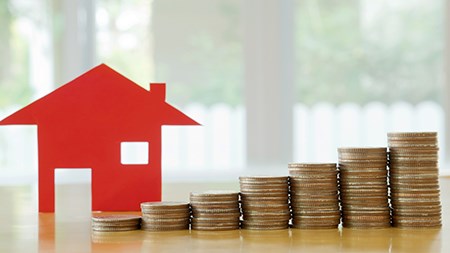The Covid-19 pandemic and lockdown has prompted many people to reassess their priorities and make changes and life choices that reflect a more balanced and, in some cases, even a more cost-effective lifestyle. This shift is particularly evident in the residential property market, with numerous transactions since the hard lockdown mirroring this trend, says Dr Andrew Golding, chief executive of the Pam Golding Property group.
“In a similar vein, the economic hardships and challenges faced over the past year and currently, have prompted many to follow their aspirations and seek ways to build wealth and grow an investment portfolio that stands the test of time and generates a passive income.
“In South Africa, the seemingly ever-resilient residential property market has historically been one of the few investments that has acted as a hedge against previously rampant inflation. Property investment, as an asset class, tends to be less prone to extreme bouts of short-term volatility. Stocks and shares can melt down overnight due to global or local shocks to the economy, but property investments tend to be more resilient with the upturns and downturns spread out over time – as seen with an earlier than expected rebound post the hard lockdown - so is an asset class better suited to those who are risk averse.
“For this reason, it forms an integral component of any well diversified portfolio as a risk management strategy while at the same time giving the owner the benefits of a tangible asset to be used and enjoyed. Another important aspect not to be overlooked is that property investments can be better leveraged by the savvy investor due to the predictability of the asset value – unlike stocks and shares, which can be heavily discounted due to the underlying volatility of these assets.”
Leveraging implies the use of a financial institution’s money to boost the potential property investment returns. For example, the investor may use 25% of their money and the bank finances the remaining 75%, while the purchaser benefits from 100% of the returns on the property.
Dr Golding says in order to mitigate risk for those who have no appetite or the financial means to assume high risk, property investment should be regarded as a medium to long term investment of at least five to six years. “This will also allow for absorption of the costs associated with buying and selling property such as transfer duty when buying as well as the consideration of any capital gains tax when selling. That said, for the savvy investor short-term speculation can produce excellent profit as in certain markets, buying now off-plan can indeed yield significant upside returns even before the time of transfer.
“With rental returns currently under pressure, the overall yield tends to be most significantly influenced by the capital growth of the property, which means that buying and selling at optimal times is key. Conservatively, it is wise to mortgage an investment property by no more than 40-50% of the purchase price unless you are prepared to subsidise the monthly repayments. While interest rates are currently at record lows, it is advisable to make allowances in your budget for increases in interest rates and levies or rates.
“Notably, properties best suited to capital growth may sometimes cost more and offer a lower yield while properties best suited to maximising yield may cost less and offer lower capital growth prospects. However, property is an asset class that is generally recognised as a safe bet, enabling the investor to enjoy the rewards of both rental returns in the short term and capital appreciation in the longer term.
“If your aim is to build a property portfolio, then it may make sense not to sell your first property down the line but rather refinance it and use the proceeds to buy another property which can be rented out. In this way you can build up a portfolio of properties, increasing your net wealth through both capital appreciation and the tenants paying some or all of your mortgage. At some point, one or more of the properties can be sold and the equity reinvested to partly deleverage the remaining properties, which will generate positive cashflow.
“Another important aspect of property ownership is the human need to have permanent tenure of one’s personal abode. Owing one’s own residential property not only offers this, eliminating the scenario where the landlord decides to sell or use the rental property themselves, it grows in value over the years, enabling lifestyle changes with little or no additional capital required, especially when the mortgage has been paid up.
“Owning residential property is diverse and exciting – it doubles up by providing us with a home and simultaneously, a solid investment. As a tangible asset, it also creates the perfect vehicle for gearing and borrowing money at the current low interest rates; it can be employed in a variety of different ways to generate income – one option being speculating, renovating and flipping; another option is holding and renting or letting out a portion of your property to create income generation; or you can simply live in your home and upgrade in phases, which in turn will add value to your asset in the long term.”
Dr Golding adds: “Furthermore, with the prevailing low interest rates, bond repayments have in some cases fallen in line with rental amounts payable, so in the lower price bands in particular, it makes sense to own rather than rent, as your monthly costs will be virtually the same as they would be if you were paying rent. The only variable would be maintenance costs and, in some metros, the high rates and levies.
“When investing in residential property, bear in mind that as the smallest, average property in a sought-after area is likely to increase in value at the same rate as other properties, the importance of location and its impact on price appreciation cannot be underestimated. Bear in mind that although a property may look discounted and may offer a good deal, if it is in the wrong location, it may never be as rewarding financially and may also be difficult to find a tenant or to sell. When looking to invest in property it is advisable to consult a knowledgeable and credible property specialist in the area/s of your choice who is backed by a reputable real estate agency.”




